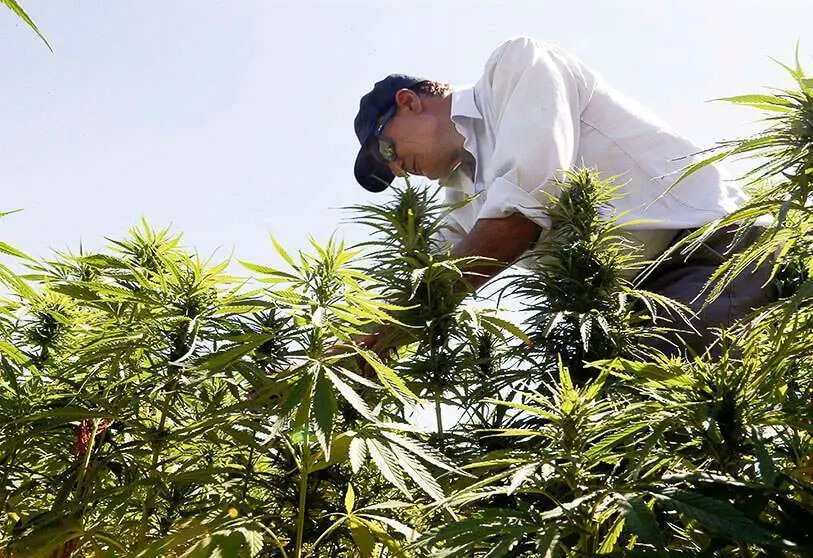Lebanon: cannabis against social peace

It is the hashish season in Bekka, one of the poorest regions in Lebanon. Cannabis has been planted here clandestinely since the Ottoman Empire, but in recent months its cultivation has been legalised and many farmers have started to grow hemp, which has countless virtues and a bad reputation.
It is estimated that 90% of Bekka's population makes a living from this illegal trade. As the region is not very wealthy, drug trafficking has become a real godsend.
Last April, while the whole world was closing its borders, Lebanon had taken a decision that would change the course of its history and has been ignored: the legalisation of cannabis for medical, industrial and research purposes. A decision that divided public opinion but was approved by a majority.
However, the hashish harvest began a month ago, the prices of the precious resin are already starting to fall and the market is self-regulating. While the raw material now sells for 30 euros per kilo, the new harvests promise to further reduce the value of green gold, much to the chagrin of the drug traffickers.
The government, in search of social peace, had no choice but to offer the people who fed on this forbidden trade the possibility of legalising it. The industry also contributed an estimated $500 million to the country's treasury.
A sum that should not be neglected at a time when Lebanon's debt is among the highest in the world. It is equivalent to $92 billion for this country of seven million inhabitants, which is equivalent to 170 per cent of its GDP.
For the time being, the debt restructuring plan is still being negotiated and the recent explosion in the port of Beirut and the damage caused have only widened the gap between the governed and the ruling classes and aggravated the crisis.
If the authorities' main concern is to rescue their coffers, drug trafficking should decrease over time and the fall in prices should deter many of them.
However, cannabis growers who welcome these new provisions should not earn as much as they used to. If they were to recoup 10 times the investment cost of staying underground, their income would fall, at least initially.
Because the government hopes to attract investment in this impoverished region in a second phase and has put its faith in the pharmaceutical industry.
Lebanon, which has been in default since last March, has chosen McKinsey & Co. to find a way out of the crisis, a world-renowned consultancy firm that has proposed legalising cannabis as a solution, an approach that has been discussed and reflected on for several years in the country of the cedar tree.
A $120 million World Bank loan has been allocated to Lebanon to develop the health sector in times of pandemic. According to former Finance Minister Raëd Khoury, "therapeutic cannabis exports could bring in a billion dollars of revenue to state coffers each year".
Lebanon is in fact the third largest producer of Cannabis in the world according to the UN. After years of repressive policies, is it time for an amnesty? Is it not so safe? Drug traffickers are still being prosecuted and even if they are waiting for a general amnesty, this is not on the government's agenda at the moment.
Lebanon will thus become the first Arab country to legalise this drug. Will this change of direction encourage other Arab countries to follow the same path? Morocco, the world's leading producer of cannabis and whose northern region also makes a living from the industry, has been trying to find a solution to this conundrum for years. Several Moroccan parties are calling for this legalisation to help curb the drug trade. The Istiqlal and the Party of Authenticity and Modernity (WFP) have already proposed legislation to legalise cannabis for medical use. According to a study by the Institute of Partners in Prohibition, "the production of Moroccan cannabis for recreational use could generate $916 million and that of cannabis for medical use $28 million by 2024".
This new export sector seems to have a bright future ahead of it and more and more countries are adopting this market logic after Uruguay, which had paved the way for countries like Canada.
Cannabis for medical use has proven its benefits in epileptic people, it also plays an important role in reducing the effects of chemotherapy treatments for cancer patients, it stimulates appetite and fights depression... and if it also helps to replenish state coffers, why not?

